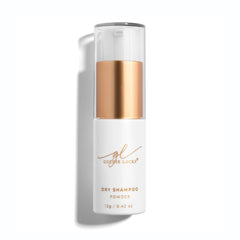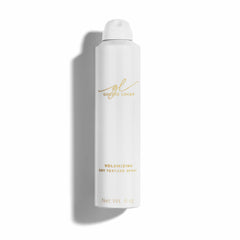Hair loss is a concern that most people face at some point in their lives, but how much is too much? If you’ve found strands of hair on your pillow, in the shower, or scattered across the floor you may start to ask yourself if the amount you are shedding is normal or cause for concern.
Understanding the three natural cycles of hair growth and the factors that can cause excessive shedding, along with ways to prevent hair loss will be key to maintaining your healthy hair.
What is a normal hair growth cycle?

Your hair grows in phases, three to be in fact. At any given time your hair is going through one of the three stages in the hair growth cycle:
- Anagen (Growth Phase) – This is the active growth stage, which can last anywhere from 2 to 6 years. During this phase, your hair is growing about half an inch each month.
- Catagen (Transition Phase) – This is a short transition stage that lasts about 2 to 3 weeks. During this phase, hair growth slows down, and the hair follicle begins to shrink.
- Telogen (Resting Phase) – In this phase, which lasts about 3 months, the hair is at rest. After the resting phase the hair is shed, and the follicle starts producing new hair.
On average, it’s normal to lose between 50 to 100 hairs per day as part of the natural hair growth cycle. This shedding is a sign that your hair is in the telogen phase, and new growth is just under the surface and on the way.
How much is too much?

While shedding up to 100 hairs a day is completely normal, if you begin noticing a lot more hair on your pillow, in the shower, or even clogging your drain, you could be experiencing telogen effluvium or TE. This happens when a larger than usual number of hairs enter the telogen (resting) phase at once and then shed prematurely. If you experience this you can lose up to 300 hairs per day. Telogen effluvium doesn’t necessarily lead to baldness, but it can cause noticeable thinning and shedding.
What Causes Telogen Effluvium?

Telogen effluvium can be triggered by many factors, like:
- Postpartum - Many new mothers experience increased shedding after childbirth, as their hormone levels adjust and hair that was retained during pregnancy starts to shed.
- Severe Stress - Stress, anxiety, or significant life changes can push your follicles into the resting phase.
- Diet - Rapid weight loss or nutrient deficiencies can affect hair health, leading to more shedding.
- Thyroid Imbalances - Conditions such as hypothyroidism or hyperthyroidism can cause hair to shed more than usual.
- Trauma or Infection - Physical injuries or infections that affect the scalp can disrupt the hair growth cycle.
- Nutrient Deficiency - Low iron or vitamin D levels are commonly linked to excessive hair shedding, particularly in women.
- Autoimmune Diseases - Conditions like alopecia areata, where the immune system attacks hair follicles, can result in hair loss.
- Medications - Certain medications, including chemotherapy drugs, blood thinners, and antidepressants, can lead to hair loss as a side effect.
Signs of Excessive Hair Loss

If you suspect that you’re losing more than the normal amount of hair there are a few signs to look for.
- Increased hair on your pillow
- Clumps in the shower or drain
- Noticeable thinning
- Hair on the floor and excess in your brush
How to Prevent Premature Hair Loss
Although some causes of hair loss like postpartum or medication side effects, may be out of your control there are several steps you can take to maintain a healthy scalp and minimize premature hair loss.
1. Maintain a Healthy Diet

Your hair requires a wide range of nutrients to stay strong and grow properly. Dieting, poor nutrition, and deficiencies in vitamins and minerals can directly impact the health of your hair. If you are unsure if you are maximizing the nutrient intake on a daily basis you can consider incorporating Goldie Locks® Supplements, which are designed to provide the maximum daily levels of micronutrients that may be missing from your diet. These supplements contain ingredients known to promote healthy hair growth, such as biotin, zinc, and vitamin D.
2. Reduce Stress

Stress has been shown to disrupt the hair growth cycle, pushing more hairs into the resting phase and causing shedding. Find ways to lower your stress levels through exercise or meditation.
3. Support Your Scalp Health
A healthy scalp is the foundation for healthy hair. Using a product like the Goldie Locks® Scalp Serum can help rebalance the scalp's microbiota creating a healthy environment for your hair to really thrive.
4. Shampoo Regularly
Some people believe that washing your hair too often can lead to more shedding, but the opposite is true. Shampooing your hair regularly helps keep your scalp clean and free from oils, product buildup, and pollutants. This can prevent clogged follicles and create the ideal environment for healthy hair growth. Use a clarifying shampoo once a week to give your scalp a deep cleanse, removing any debris that could hinder hair growth.
Final Thoughts
While losing some hair each day is normal, excessive shedding can be a sign that something is off in your body. Whether it’s stress, nutrient deficiencies, or scalp health, taking proactive steps can help prevent further hair loss and restore your hair’s vitality. Remember, the key to healthy hair is a healthy scalp so nourish your scalp, manage your stress, and give your body the nutrients it needs to keep your locks thriving.




























